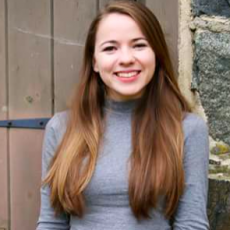
Both the City of Springfield Climate Action & Resilience Plan (CARP) and the 4-City (led by Springfield) Analysis of Impediments to Fair Housing have recommended the City of Springfield, MA consider implementation of a Racial Equity Impact Assessment. The COVID-19 Pandemic has highlighted the dangerous impact of racial inequity on human life and suffering, and as violence against Black and Brown people continues to happen with immunity, the need to act has been, and still is, now.
Racial Equity Impact Assessments are established government tools that are used successfully in cities
across the United States to advance racial equity. They can help local leaders to understand the racial
equity implications of an existing or proposed policy, program, or institutional practice, and to
determine if it will ameliorate or exacerbate existing economic and social inequities.
This project seeks to understand how Racial Equity Toolkits can be adopted in Springfield by researching case studies on US cities where they are successfully implemented; including Seattle, Austin, Madison, and Rochester. With the June 2020 announcement that Springfield is to create an Office of Racial Equity, our project sought to understand how and to what extent Racial Equity Toolkits can be utilized. It was important to our research that no city has "arrived" at racial equity; but rather that it is an effort that will require constant attention, care, development, and resources.
Our research was supported heavily by the work and efforts of the Government Alliance on Race and Equity. Our research culminated in supporting a Pioneer Valley Planning Authority webinar titled "Race and Health Equity Tools for Local Governments and Organizations" in the form of a seven page resource bank. Our findings provided specific resources, online tools, key readings, and examples for attendees to use to further the case for implementing Racial Equity Toolkits in their communities.
My internship was a balance of independent work and team meetings. While I received tasks and ideas from both my supervisor Michael and our contacts at PVPC, I was responsible for carrying out and organizing our findings. My research began with collecting background knowledge, comparing census data to find focus cities most similar to Springfield. We focused on mid-size legacy cities, using data on population size, COVID infection rates, the party affiliation of mayors, declarations of racism as a public health crisis, and more to draw conclusions about similarities and differences. While we valued the diversity of our focus cities, we wanted to ensure that there were cities with similar communities and challenges to Springfield; to make it clear that Springfield is capable of adopting these efforts as well. After deciding on the selected focus cities, I presented them to my supervisor and our client at the Pioneer Vally Planning Commission. My research then required a detailed look at the cities initiatives through Master Plans, Crisis Response Plans, community calendars, archives, and recent news. I was able to gather an understanding about each unique plan, and analyze the strengths, limitations, and impacts of each unique program.
To complete my work, I also was responsible for further educating myself on systemic racial inequalities. Our final product of a resource bank included a number of readings for understanding the pervasiveness of racism in our communities. I read, organized, and cited articles, studies, and webinars supporting the case for the need of racial equity impact assessments to strengthen my work- though there is still much for me to learn.
My CAFE Summer Scholars internship was the highlight of my academic experience here at UMass. Often in a classroom setting, it is easy to question how much impact you are really capable of having on the world. The opportunity to have a hands-on experience in working towards one of, if not the most, pressing issues our world is facing today was the experience that allowed me to put what I have learned and worked towards while at UMass into motion.
The internship helped me understand my future goals by giving me the opportunity to experience working for a planning commission, strengthening my professional skills by working alongside professionals, doctorate students, and masters students. It only nourished my previous conviction that I hope to always be working on something meaningful, in pursuit of the greater good.
While my internship improved my research, interpersonal, presentation, and organizational skills, above all it taught me how much left I have to learn. I learned so much throughout my internship with the opportunity to truly delve deeper into the topic of racial inequity; and am excited to continue learning more about the topics of systemic inequality and social equity. I look forward to graduating in Spring of 2021 and moving into my professional career with the same mindset of contributing to a greater good, continuously learning, and making a difference.
As a student, I could not be more grateful for this program! To be paid for your work gave me as a budding young professional a sense of empowerment that I did not have before. I appreciated the livable wage, support systems, and student centered nature of the internship. I think funding these types of local opportunities is something that UMass only needs more of. Thank you!!